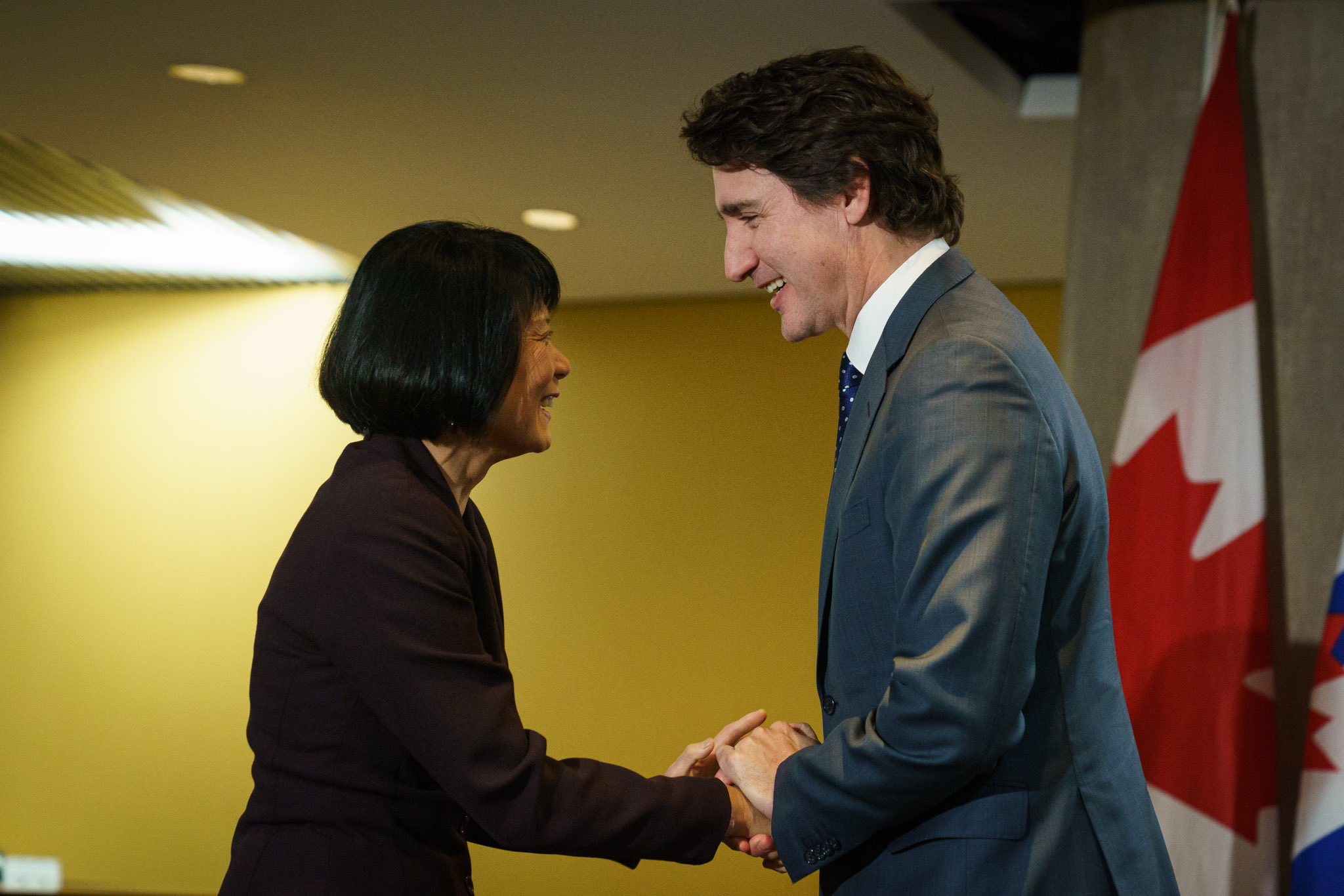Toronto secures nearly half a billion from housing fund
Officials say HAF investments will provide Toronto with a predictable funding stream over the next three years.

Toronto Mayor Olivia Chow, left, meets with Prime Minister Justin Trudeau.
Key Takeaways:
- The city is getting $471 million through the Housing Accelerator Fund (HAF).
- Over three years, the money is expected fast-track nearly 12,000 new housing units.
- The city’s HAF application outlined eight initiatives focused on creating more affordable housing faster.
The Whole Story:
Toronto will receive $471 million in funding through the Housing Accelerator Fund (HAF), the largest payment under the program so far.
The funds are expected to result in an additional 11,780 homes in Toronto on top of what has already been projected over the next three years.
“Torontonians are grateful to the Prime Minister Trudeau and Minister Fraser for their $471 million investment in building more housing, quickly, in our city,” said Mayor Olivia Chow. “Toronto is ready to build. We’ve set a new goal of building 65,000 rent-controlled homes, and we’re committed to the provincial target of 285,000 homes by 2031. Housing Accelerator Fund investments are essential to addressing the housing crisis and meeting these targets. Everyone deserves an affordable roof over their heads, and today’s announcement helps make that a reality.”
Officials say the funding will allow the city to increase the supply of new rental homes, protect existing rental homes and people who rent as well as revitalize neighbourhoods. The funding will also help enhance the city’s capacity to accelerate the review and approval of new homes by continuing to streamline processes and introduce new technology.
HAF is delivered by the Government of Canada, through the Canada Mortgage and Housing Corporation (CMHC), as part of the National Housing Strategy. HAF aims to achieve 100,000 new homes across Canada over the next three years.
The city submitted its HAF application to CMHC in June and followed up with a revised submission in August. The city’s HAF application outlines eight initiatives focused on creating more affordable housing faster in neighbourhoods across Toronto that include:
- Transforming organizational structures, processes and technology used to deliver development review and increasing capacity to expedite the approval of development applications.
- Revitalizing Toronto Community Housing buildings and creating net new RGI and affordable rental homes.
- Protecting rental homes, supporting people who rent and reducing housing speculation.
- Developing City-owned land and expediting delivery of new, permanently affordable rental homes within transit-oriented and complete communities.
- Transforming Toronto’s Waterfront as a catalyst for support of social, economic and cultural growth.
- Implementing a new Rental Housing Supply Incentives program.
- Expanding missing middle housing options and increasing project certainty.
- Optimizing land use and simplifying the planning approvals process to increase purpose-built rental supply in apartment neighbourhood zones.
In addition to scaling up new housing supply, federal HAF investments will enable the city to expand the Multi-Unit Residential Acquisition (MURA) program, which has been successful in supporting the not-for-profit housing sector to acquire and convert market rental properties into permanently affordable rental homes for lower- and moderate-income residents.
HAF supports the implementation of the city’s HousingTO 2020-2030 Action Plan (HousingTO Action Plan) that targets 65,000 new rent-controlled homes across the city by 2030 including 6,500 RGI homes and 18,000 supportive homes with a focus on helping people exit homelessness. Officials say HAF investments will provide Toronto with a predictable funding stream over the next three years. In addition, this funding will contribute towards the federal government’s share of funding, estimated at $500 to $800 million annually, to achieve the city’s 65,000 rent-controlled homes target.
